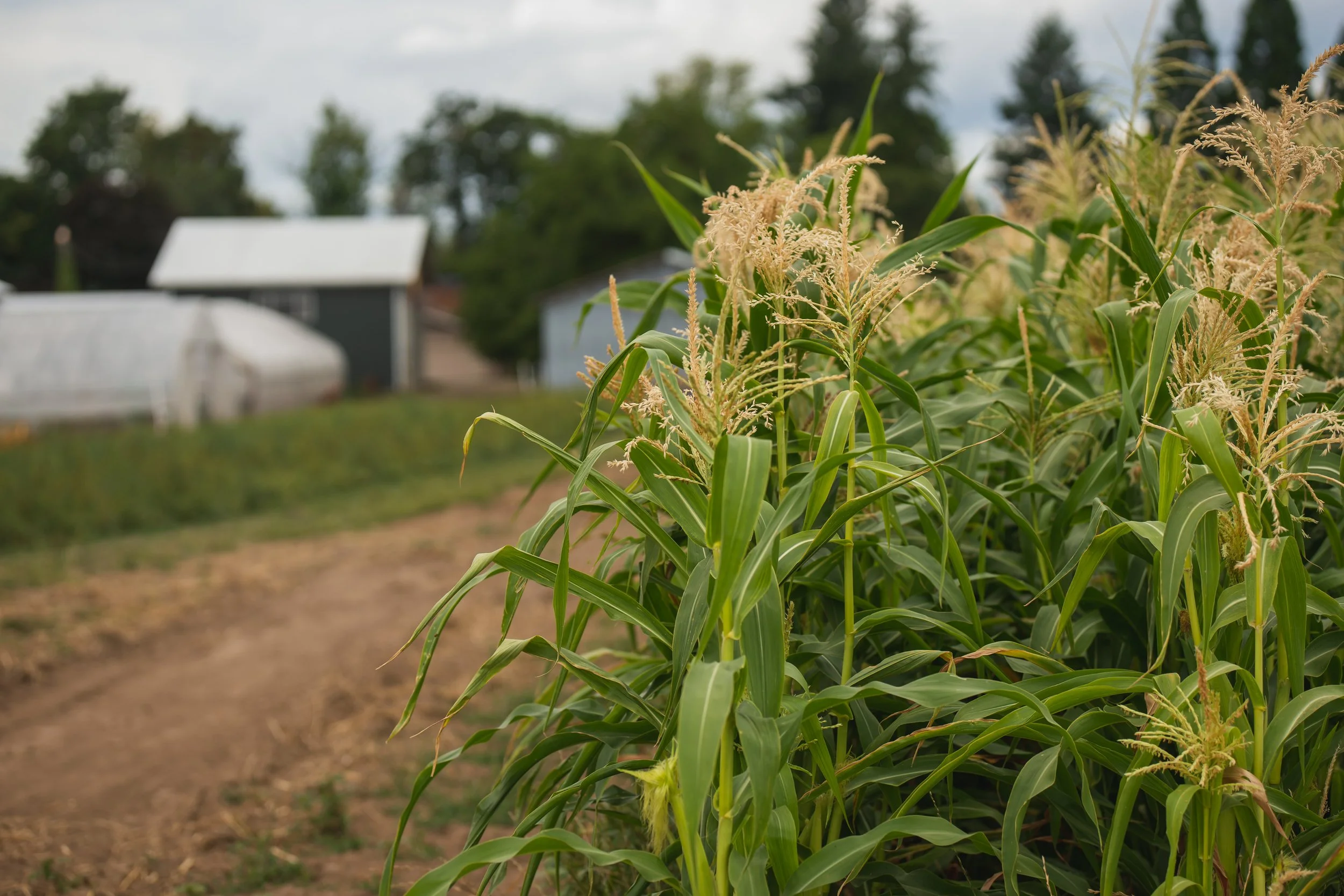
Farm & Livestock Announcements
Funding Available for Conservation Plantings
Clark Conservation District now has funding to help landowners improve soil health, support pollinators, and enhance their farms and properties with conservation plantings. Fill out our Request for Assistance Form to learn more about receiving technical assistance and cost share support for cover crops, native pollinator seeds, and pollinator hedgerow planting.
Nutrient Management Calendar
Download our 2026 Nutrient Management Calendar or keep your eyes peeled for physical copies at our upcoming events and workshops.
Farm & Livestock
Clark Conservation District offers free assistance to farmers and landowners implementing conservation practices on their land. Check out more information on livestock and nutrient management best practice.
Clark Conservation District is a non-regulatory, grant-funded organization dedicated to improving water quality, soil health, and other natural resources in Clark County. We offer voluntary planning services to established farms, not prospective ones, to funding limitations. We're working to expand our services, so sign up for our newsletter to stay informed about our priority areas and funding updates.
Already know what you’re looking for? Contact us!
Working Lands Staff
ag@clarkcd.org
360-859-4780, ext. 6
You can also contact us using our Request for Assistance Form:
What Can Clark Conservation District provide?
We provide free planning services, low-cost equipment rentals, funding assistance, and cost share options for established farms to address resource problems on your land. Please see below to learn more about our current offerings.
To get started, contact us with details about your resource concerns. If you’re new to the property and want more information before requesting assistance, check out our Farm Resources page. Please note that we are not able to offer crop or animal recommendations.
-
Enhance Pasture Health and Reduce Costs
Livestock owners in Clark County can improve pasture health and lower feed costs with prescribed grazing plans with our Sustainable Farms and Fields program. Prescribed grazing optimizes pasture use by providing nutritious forage and reducing the need for supplemental feed. Clark Conservation District can offer technical and financial assistance including cost share for temporary fencing to help you implement a grazing plan that is tailored to your farming operation.
Poop Smart
Poop Smart Clark is a partnership initiative led by the Clark Conservation District, offering technical assistance and funding to livestock producers. The program focuses on improving land management practices to enhance soil, water, and habitat quality in Clark County. Eligible producers can apply for financial support to implement conservation practices that benefit the environment and their operations.
-
BMPs are researched practices that improve water quality, soil health, wildlife habitat, and other natural resources. The District has a wealth of information concerning water quality, management of small- and large -scale farming operations, and implementation of BMPs.
We can provide free planning and financial assistance for many BMPs, including:
Mud and manure management
Manure storage and composting
Rotational grazing systems
Fencing including cross fencing and fencing animals out of streams (not perimeter fencing)
Off-stream watering
Heavy use areas
Nutrients and fertilizing
Riparian plantings and wildlife habitat
And more!
To learn more about livestock and horse BMPs, check out our Manure Matters webinar series for presentations on manure and pasture management. For additional resources on implementing specific best management practices, visit our partner at the WSU Extension Small Acreage Program website.
-
Conservation Plans are useful management tools tailored to an individual's property that address landowner management goals and challenges, water quality, and other resource issues on the property. Plans are working documents that can be revised as landowner objectives and/or circumstances change. Farms of all sizes can benefit from conservation planning.
Planning is a dynamic process that includes:
Understanding the problems, opportunities, and objectives
Understanding the solutions and alternatives
Implementing, understanding, and evaluating the results.
Each farm plan is crafted for the individual farm. For more information on how you can develop a plan for your farm, please see the resources on our Farm Resources page.
-
Clark Conservation District has several equipment rentals available to help you get the job done. See current offerings here.
-
Clark Conservation District offers a free service connecting livestock owners with surplus manure to gardeners, landscapers, and community members who need it. The Manure Exchange program is an easy and more sustainable way to share and recycle organic matter and nutrients. Learn more here.



